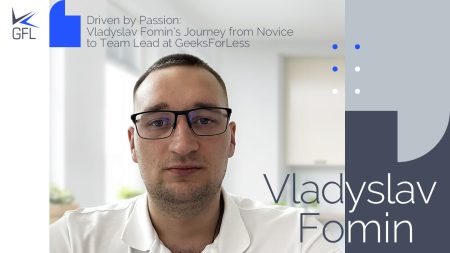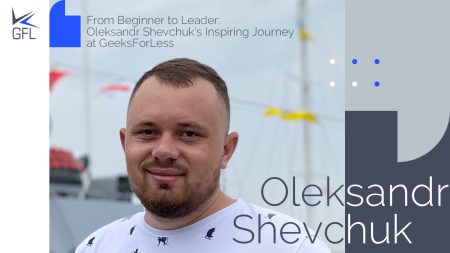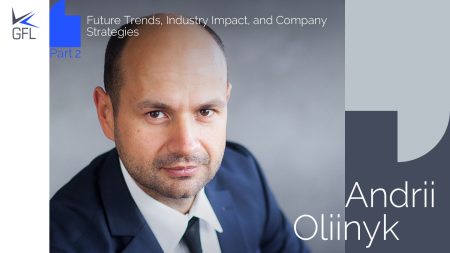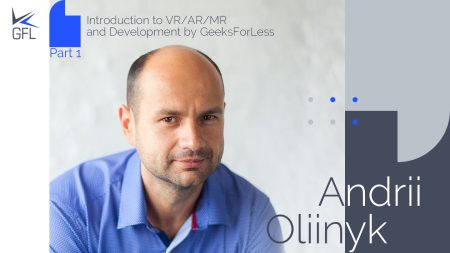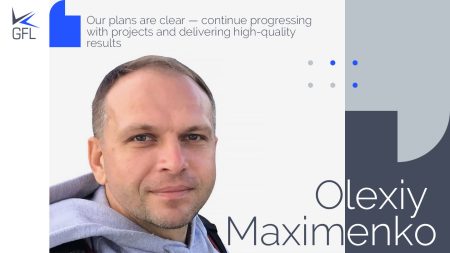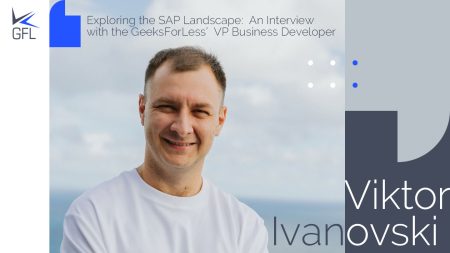Navigating the Evolution of Mobile Development
Mobile development started in the early 2000s, with the appearance of mobile devices with advanced features and capabilities. Andrii Parkhomenko, Vice-President of GeeksForLess, has been in the company for over twenty years, from the beginning of mobile development worldwide. Here is what he has told us about the evolution of mobile development within GeeksForLess, how the company has successfully kept up with the novelties, and what’s next for the industry.
How did mobile development start in your company?
It was 16 years ago. We started with the launch of the first iPhone in 2007. GeeksForLess’ management immediately realized that this was the future.
While we are a service company, we also created our own products back then. Our game ‘Medieval’ was number one on the Appstore, which was a huge achievement.
What do you offer in terms of mobile app development at GeeksForLess?
The mobile development market is split between iOS and Android devices. We offer the full spectrum, as well as cross-platform development. When I say ‘full spectrum’, I mean that we provide not just mobile development, but also testing, UI/UX design, project management, and project release. This gives our clients and us the flexibility to choose the best way to work together, from turnkey projects to customized requests on a specific service.
Exploring Client Preferences and Decision Making in Mobile Development
Is there any type of preference among your clients? Are there more clients who prefer turnkey projects or those who need customized adjustments?
I would say that it is balanced, and it depends. Maybe, with a slight advantage of clients looking for a particular service.
Do you think there is a reason for that? Is it possible that since today’s clients can have more knowledge in mobile development, they do a part of the work themselves and ask a professional for specific services?
I don’t think there is a tendency. Most of our clients come from networking and through word of mouth — maybe their requests are based on what was done for their partners or colleagues.
Did you ever have to say «No» to a client?
Yes, but it was never in a condescending way. Our knowledge and experience allow us to see in advance whether the idea is not viable. For example, it can be a very busy niche, or it’s just impossible to implement.
Would you have an example of an idea that was impossible to implement or just not worth it?
When Apple released the Measure app, we were approached with an app idea where you would be able to get your body size for clothing based on the picture you upload. It would have been too much hassle for a questionable result — first, all body types are different. Second, even the angle of the photo could drastically change the result. Also, the sizes vary not only from country to country but also between brands. In general, the idea of suggesting that people buy clothes without trying them on is not the best one.
What if the client insists?
Our idea is not to make money and leave. We want to build a long-term relationship and create something that both our client and their clients will enjoy. The goal is to explain all the risks, and then if the client still insists, we will do what it takes, but we can’t guarantee anything.
Again, we want our client to succeed because it contributes to our success.
Ensuring Quality and Long-Term Support in Mobile Development
How do you ensure that your projects meet quality standards and user requirements?
There are many ways. One of them is to test the app on as many devices as possible. The mobile market is very fragmented, especially the Android devices, and we need to ensure that the project will function on any device.
With what business types do you mostly work?
At GeeksForLess we are comfortable and experienced enough to work with any business type in terms of size or activity. When the client comes to us, it’s not the business type that will define whether we will work together.
You talked about long-term relationships with your clients before. Does it also mean that you support your clients after the project release?
Yes, absolutely. When we work together, we aim to make your project as modern, smooth, and viable as possible. Then, there are different ways we can support you after the release. We fix the bugs, add new functionalities based on the users’ suggestions, and release new versions.
Another interesting interview: Exploring the SAP Landscape





